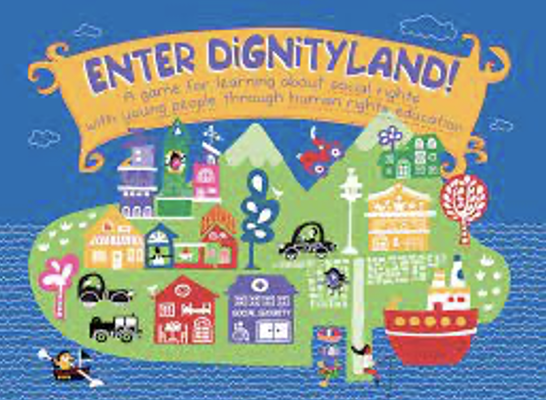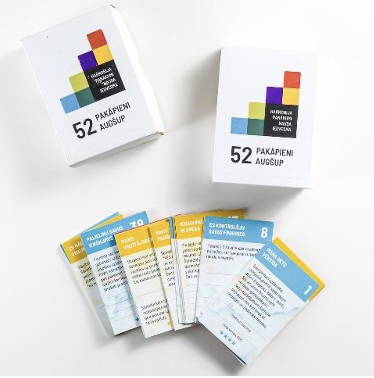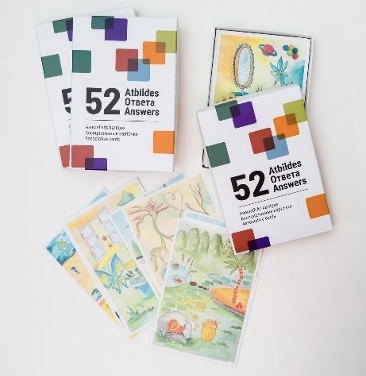| Duration: 60 – 90 min Number of players: 3 – 5 player/s in one team Materials/ Tools needed: Game set “Enter Dignityland!” Publisher: Council of Europe Language: EN, FR Links: https://www.coe.int/en/web/enter/enter-dignityland-1 |
Short description
Enter Dignityland! is a card game in which players, as Members of Parliament in an imaginary country called Dignityland, are asked to decide on the social policies concerning social rights within a development plan for the next five years. Through argumentation and decision- making processes, players learn more about social rights and their links to social policies.The aim of the game is for the players to agree on a development plan, which includes seven policy areas, for the next five years. While deciding, they need to be aware that the country’s resources are limited and need to be considered.
Educational value/ Learning Objectives
“Enter Dignityland!” is an action-orientated game and through discussions and drawing parallels with their own realities, participants are encouraged to develop specific actions for social rights.
- to raise awareness of the indivisibility, interdependence and universality of human rights
- to increase participants’ understanding of social rights and social policy
- to critically explore the reality, policies and developments in the area of social rights
- to reflect on the role of young people in the development of social policies
Recommendations for use
- This is a card game in which each player has the role of a Member of Parliament in an imaginary country called Dignityland. In this country the Parliament Members decide on a set of national policies concerning social rights within a development plan for the next five years.
- Through argumentation and decision-making processes, players learn more about social rights and their links to social policies.
Tips and Tricks for Facilitators
How to adapt game for different groups, topics, occasions/needs
The game can be played in different contexts, in formal and non-formal educational settings, as part of a training course, in schools, in peer groups or within any educational activity.
Feedback questions
Start debriefing immediately after having played the game; it is an inseparable part of the game! Questions and reflections should be based on both the dialogues during the game and the situation emerging at the end.
Participants can recall what happened during the game, de- scribing it again for illustrating the ideas, tensions or findings (What happened? How did you feel?). However, the debriefing should not be used to repeat the discussions that took place during the game. The game is over and the debriefing should serve to build the “learning and action bridge” to reality
Further discussion topics
Inclusion
Human rights
Active participation
Diversity




